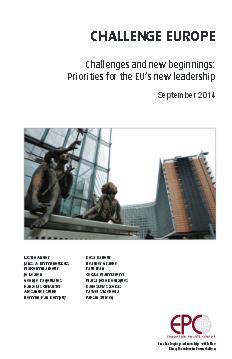Gros, D. (2014) “The ECB’s Faulty Weapon“, Project Syndicate, 07 Οκτωβρίου. With inflation in the eurozone stubbornly remaining on a downward trajectory, pressure on the European Central Bank to do “something” to prevent outright deflation is growing. This “something” is usually understood to be massive asset purchases, or quantitative easing (QE). But would QE actually do the trick? The discussion has so far followed easily predictable national patterns: Creditor …Read More
Germany’s Bad Numbers Are Great News For All Of Us
Ilargi Meijer, R. (2014) “Germany’s Bad Numbers Are Great News For All Of Us“, The Automatic Earth Blog, 07 Οκτωβρίου. Something’s happening in Europe that I would like to cheer and encourage at the top of my lungs. While only yesterday, most European leaders, the ECB and the IMF were busy chiding Germany for not lowering taxes or increasing government investment in its economy, today’s release of German economic …Read More
The myopia of neo-liberalism and the IMF is now evident to all
Mitchell, B. (2014) “The myopia of neo-liberalism and the IMF is now evident to all“, Mainly Macro Blog, 08 Οκτωβρίου. The IMF published its October – World Economic Outlook – yesterday (October 7, 2014) and the news isn’t good. And remember this is the IMF, which is prone to overestimating growth, especially in times of fiscal austerity. What we are now seeing in these publications is recognition that economies …Read More
Better together – a new hope for a federal Europe
Oomsels, P. (2014) Better together – a new hope for a federal Europe, EU Observer, 08 Οκτωβρίου. The victory of the No in the referendum on Scotland’s independence has saved the United Kingdom. However, it is clear that post-referendum UK will be different from pre-referendum UK. This is because, after promises of further devolution of competences made by Westminster, the Scottish No to independence can only be interpreted as …Read More
The Lost Consistency of European Policy Makers
Saraceno, F. (2014) “The Lost Consistency of European Policy Makers“, Sparse Thoughts of a Gloomy European Economist Blog, 06 Οκτωβρίου. Just a quick note on something that went surprisingly unnoticed so far. After Draghi’s speech in Jackson Hole, a new consensus seems to have developed among European policy makers, based on three propositions: Europe suffers from deficient aggregate demand Monetary policy has lost traction Investment is key, both as a countercyclical …Read More
The German experiment has failed
Mitchell, B. (2014) “The German experiment has failed“, Mainly Macro Blog, 07 Οκτωβρίου. In the last week, several new data releases have shown that the Eurozone crisis is now consolidating in the core of Europe – France, Italy and … yes, Germany. The latter has forced nonsensical austerity on its trading partners in the monetary union. And, finally, the inevitable has happened. Germany’s factories are now in decline because …Read More
Challenges and New Beginnings: Priorities for the EU’s New Leadership
European Policy Centre (2014) “Challenges and New Beginnings: Priorities for the EU’s New Leadership, Challenge Europe, Issue 22, Σεπτέμβριος. Foreword There has been a lot of attention on the current transition of power taking place in Brussels. For the first time in European Union history, the new President of the European Commission will take up his post after being nominated as ‘Spitzenkandidat’ of the party group which gained the …Read More
Why A European Unemployment Insurance Would Help To Make EMU More Sustainable
Dullien, S. (2014) “Why A European Unemployment Insurance Would Help To Make EMU More Sustainable“, Social Europe Journal, 03 Οκτωβρίου. Since the onset of the euro-crisis, the old debate pertaining to the supra-national stabilisers in the euro-area has gained new relevance. While economic textbooks have long stipulated that countries forming a monetary union need an alternative mechanism for dealing with asymmetric shocks and even the early feasibility studies on …Read More
Austerity Tales: the Netherlands and Italy
Mazzolini, G. & Mody, A. (2014) “Austerity Tales: the Netherlands and Italy“, Bruegel Think Tank, 03 Οκτωβρίου. The analysis in this article warns that the deflation is likely to be a country-specific phenomenon, requiring counter measures at the country level In 2008 and early-2009, most euro area countries joined in an internationally-coordinated stimulus of the global economy to ward off the menacing crisis. But by late-2009, especially after the …Read More
The German Constitutional Court’s decision on OMT: Have markets misunderstood?
Siekmann, H. & Wieland, V. (2014) “The German Constitutional Court’s decision on OMT: Have markets misunderstood?“, Centre for Economic Policy Research, Policy Insight No. 74, Οκτώβριος. The European Central Bank’s announcement of the Outright Monetary Transactions (OMT) program in summer 2012 is widely credited, not least by the ECB itself, as a key factor in the subsequent decline of sovereign risk premia in the Eurozone. Following the February 2014 …Read More





